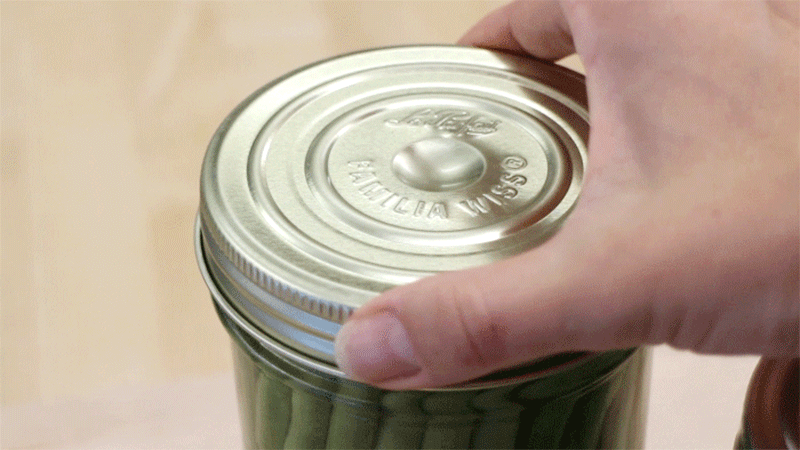Lacto-Fermented Green Beans
by Paige Russell in Cooking > Canning & Preserving
12776 Views, 33 Favorites, 0 Comments
Lacto-Fermented Green Beans

This recipe is so easy, and the results are so mild and delicious, it makes me want to plant my entire yard with green beans. But then I remember I also love peppers, and carrots, and tomatoes, and...
:D
Safe Home Lacto-Fermenting

This recipe is a project that I made to go with my Instructables Canning & Preserving Class. I will not be going over all the safety ins and outs of preserving foods with lacto-fermentation in this instructable, so I highly recommend that you read through Lessons 1 & 4 of my class before you dive in!
Tools & Equipment

- scale
- colander
- medium bowl
- measuring spoons
- measuring cup
- (x2) clean quart jars with lids*
*It's not necessary to sterilize the jars. Washing and drying them is enough, as the low pH environment that the good bacteria and lactic acid create during the lacto-fermentation process is inhospitable to bad bacteria.
Recipe

- 2 lbs (907 grams) of fresh green beans
- 3 cups of filtered, distilled or de-chlorinated water*
- 1 tbsp kosher salt
*The chlorine in unfiltered tap water can kill the good 'lacto' bacteria, inhibiting proper fermentation. To de-chlorinate tap water, leave the amount you need out on the counter (uncovered) overnight and the chlorine will evaporate. If you forget to do this ahead of time, use filtered water or run out and buy distilled water.
Making the Brine


Make the brine by dissolving the salt in the 3 cups of water.
Prepping the Beans


Sort through your green beans and pick out 2 pounds of the crispest, youngest and best looking beans. Give them a rinse in cold water, shake off the excess water and let them air dry for at least half an our.
If you'd rather not wait, you can pat them dry with a kitchen towel. The reason we do this is to keep an excess amount of chlorinated tap water from ending up in our jar.



Snap or cut off the ends of the beans.
Packing the Jars

Lay a jar on its side and begin stacking the beans into the jar.

Fill the jar until it's no longer easy to add more.

Stand the jar straight up and add as many more beans as possible.

If your beans are shorter than the jar, it's ok to cut them and add shorter pieces to fill in the space.

Just continue to shove the shorter pieces in...

Until the jar's completely full.

You want to leave about 1/2" headspace so there's room to cover the beans with the brine.

Repeat for the second jar.
Adding the Brine



Fill the jars with the brine.


Loosely screw on the lids.

They need to be loose enough so that brine that is displaced by the gasses created by the fermentation process can escape the jar as needed.
Let the Fermentation Begin!

Place the jars on small plates (to catch the displaced brine) and put them in a dark and cool spot in your kitchen that's at room temperature and out of the way. Leave them for 2-3 days.

After one day, this is how much brine had been pushed out from one of my jars.

Once a day for the 2-3 days at room temp, unscrew the lid and check for signs of the fermentation process. Small bubbles should be forming and the brine will be slightly darker.

If any beans have floated up, push them back in place using the back of a spoon.

At the end of day two, this is what my brine looked like. Much cloudier than just the day before. This is what we want! It means the lacto-fermentation process is indeed taking place.

This is what the top of my brine looked like on day 3. Perfectly murky looking! Now it's time to put the lids back on and move the jars to the fridge.
NOTE: Make sure to tighten the jar lids before placing it in them the fridge for storage.
Storage
I would let them continue their slower fridge ferment for at least another two weeks before serving them. They will last in the fridge for up to 1 year!
NOTE: For more detailed storage tips, visit lesson 4 of Canning & Preserving Class!
If you enjoyed these, check out my instructable on another lacto-fermentation staple that has been around for hundreds, if not thousands of years: Sauerkraut!!